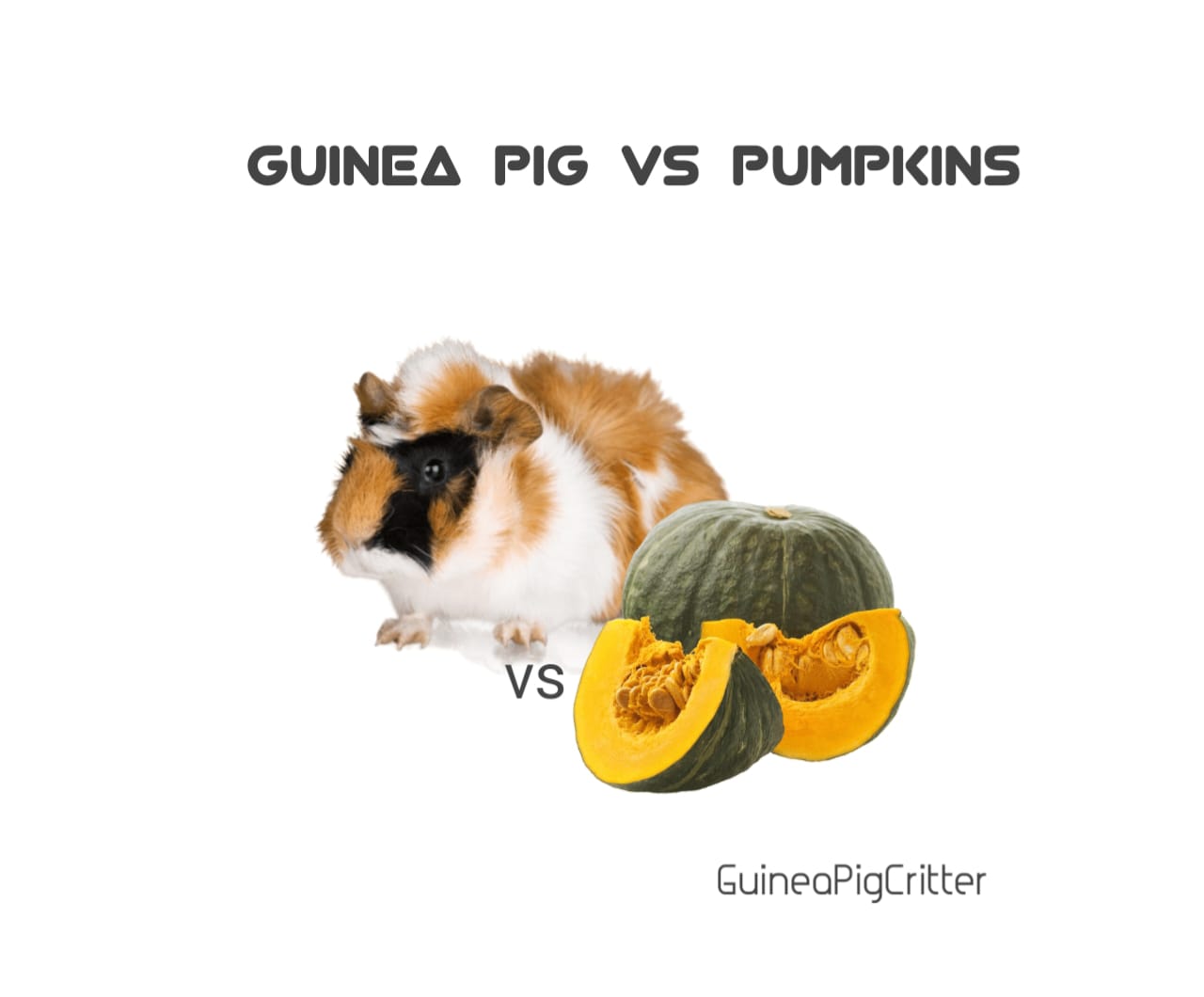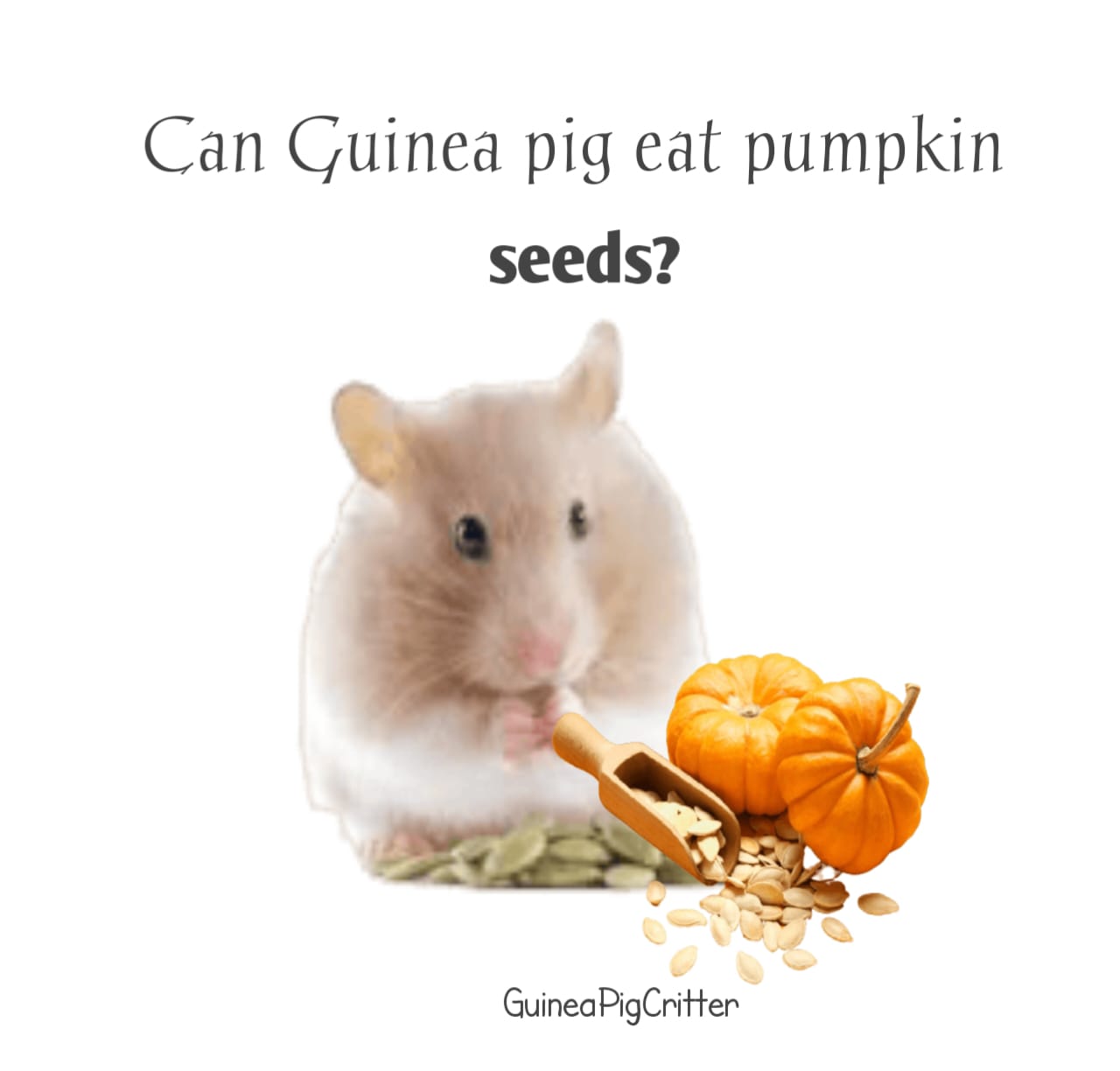Pumpkin seeds are a healthy snack for many people as they are packed with magnesium, healthy fats, and protein. However, while they are healthy and tasty for us, our little furry companions may not feel the same or think they are worth having.
In this post, we set out to answer the question, “are pumpkin seeds good for guinea pigs?” Ideally, we will determine the potential risks, the nutritional value, and perhaps even suggest more appropriate and healthier options to guinea pigs.
What’s the deal with pumpkin seeds?
One of the things that a person loves to do is feed their favorite dishes to their pets. It is understandable that pumpkin seeds have a delightful taste and have a crunchy texture, and for this reason, it may be appealing to some pet owners to feed their guinea pigs pumpkin seeds.
After all, they contain lots of useful elements that are conveniently available to guinea pigs. However, just because something is beneficial to the human population does not mean that this will automatically be true for our pets.
This article will argue in favor of the facts concerning prohibitive elements such as pumpkin seeds and suggest other healthy alternatives to what else can be safely given to guinea pigs.
Are pumpkin seeds safe for guinea pigs?
To respond to the question whether guinea pigs can eat pumpkin seeds, it is necessary to establish what nutrients are found in this food. Below is the list of the nutrients in pumpkin seeds and the impact of each of those nutrients on a guinea pig:
Protein and healthy fats: the seeds contain a good quantity of protein and healthy fats that are good for humans and some higher fat metabolizing animals, but not for guinea pigs exposed to high calories, even a minimum quantity will make their digestive processes become complicated.
Vitamins and minerals: with regard to vitamins, pumpkin seeds are rich in vitamin e, magnesium, iron and zinc. These minerals are useful for promoting cardiovascular health, the immune and skin in human beings. Guinea pigs on the other hand do not the benefits of these nutrients in the same manner and other food sources of vitamins especially vitamin c need to be incorporated.
Fiber: fiber is a component of pumpkin seeds, but it is not the fiber type that is suitable, appropriate, or necessary for the guinea pigs.
Their diet should consist of a lot of hay since it is rich in indigestible fiber that is important for their digestive system.
Although these nutrients may look useful, considering terms healthy, within comparison with what guinea pigs usually eat, it is easy to conclude that these will be harmful if consumed in excessive amounts.
Should pumpkin seeds be given to guinea pigs?
Pumpkin seeds are bad for guinea pigs because they have a unique structure and require a large amount of fiber for digestion. Little guinea pigs have a hard time breaking down the following pumpkin seeds and other similar seeds for these reasons:
Oil components: the guinea pig’s structure is not intended for high oil content seeds or nuts. Their diet consists of fibrous matters with low concentrations of oil. Since seeds and nuts are high in oil content, over decades of eating them may contribute to obesity, liver disorders, and other diseases as they may upset their digestive systems.
Large size of seeds: in terms of size, pumpkin seeds are relatively more bulky and tougher than guinea pig’s small heads. The situation becomes all the more severe when the seeds are swallowed whole or into larger pieces. This often results in seeds getting stuck in the throat, which can be a choking threat. Babies or small size guinea pigs can easily choke on it too.
Challenging seed shells: there are instances when cavies do manage to chew the seeds. Majority of the seeds have a tough exterior which is difficult to digest. The lipid molecules in seeds share a structure that guinea pigs do not have the digestion industry enzymes to effectively penetrate the lipids’ and proteins’ fatty acids, leading to stomach upset, bloating, and in extreme cases, blockage.
Risks of giving pumpkin seeds to guinea pigs
Having discussed why pumpkin seeds are not recommended for guinea pigs, let us now discuss how feeding them to your pet can be detrimental:
Gastrointestinal problems: guinea pigs’ digestive system is weak and so is their gut bacteria, which can easily be imbalanced by pumpkin seeds or any food with a high amount of fats and proteins. This imbalance can result in diarrhea or excessive gas and an intestinal condition called ‘gastrointestinal stasis’, where the entire gut movement slows down or entirely stops, which can be fatal if not treated on time.
Obesity and related health problems: panels are not really made to burn calories from fatty foods. These are mainly justifiable for guinea pigs who have low-fat and high-fiber dietary needs. In the long run, weight gain can come from calorie surplus caused by eating too many pumpkin seeds leading to weight gain.x2a being heavy will make their internal organs and joints stressed along with their cardiovascular system.
Exposure to aflatoxins and other poisonous substances: not common but pumpkin, if not kept in controlled conditions, has a chance of carrying spores of fungus that synthesizes aflatoxins, a toxin that is very harmful or lethal even to small animals like guinea pigs.
What else can i give my guinea pig aside from pumpkin seeds?
If you cannot give your guinea pig pumpkin seeds, what treats can you give them without risking their health? There are a few forage options here and gently let the guinea pig indulge. These include:
Leafy greens: leafy greens such as romaine lettuce, spinach, and kale are some of the best options for guinea pigs. They are not calorie-dense, have dietary fiber and contain a good supply of vitamins, such as the vitamin c, which the guinea pigs can use for their well – being.
Bell peppers: bell peppers can be best described as the guinea pig’s superfood. They are rich in vitamin c and come in different colors, each with its nutrients. Also, they are crunchy sweet which is what most guinea pigs’ enjoy.
Carrots and root vegetables: though carrots and other root vegetables are quite high in sugar, they can be classified as a rare treat, but in minute quantities. They are a wonderful source of natural sweetness that guinea pigs would be fond of, while the crunch is great for their teeth.
Pumpkin flesh: although pumpkin seeds are not suitable, small amounts of pumpkin flesh are safe and nutritious for guinea pigs. Pumpkin is high in fiber, which improves digestion, and has a sweet flavor that most guinea pigs’ relish.
Herbs: for the finicky guinea pig, fresh herbs such as parsley, cilantro, and basil can also supplement the diet. They do not only provide exquisite taste; they are nutritional as well.
All the above options, therefore, are safe, easily digestible and suitable for the dietary requirements of guinea pigs. Make sure any new foods are given in small quantities at first and only introduced slowly.
Conclusion: can guinea pigs eat pumpkin seeds?
As a last word, though, pumpkin seeds can be a boon to the human health, they are not suitable for guinea pigs. For these small pets, they are unsuitable because of their high fat’s content, choking risks and their hard to digest nature. Instead, emphasize on low calorie and high fiber foods as well as vitamin c, which guinea pigs need to take since they cannot manufacture it within because of the daily requirement of this vitamin.
The ideal diet for them is mainly hay, and supplemented with guinea pig pellets and some fresh vegetables and fruits. As a result of giving feeding your pet guinea pig with vigilant regards to guinea pig, the pet will be healthy, happy, and well nurtured.


